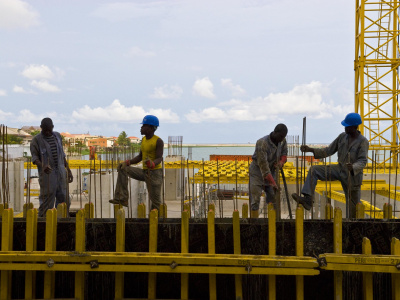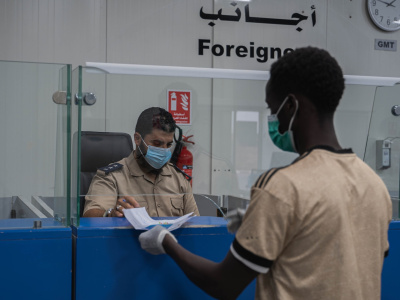
Free movement in West Africa: Juxtapositions and divergent interests
What are the juxtapositions and divergent interests when it comes to free movement in West Africa?
Summary
In March 2020, there was an unexpected halt to mobility as the COVID-19 pandemic spread across the world, resulting in lockdowns and restrictions on all ‘non-essential’ travel. In the ECOWAS region, national borders and internal boundaries (towns and states) are closed to contain the spread of the infection. The region is no stranger to epidemics or to imposing restrictive measures for public health reasons, having taken similar measures to curb the spread of the Ebola virus in 2015. Still, these restrictions to mobility in ECOWAS have resulted in increasing food prices owing to logistical problems in food supply chains (Karkare 2020). The mobility restrictions have also affected workers who can neither go home to their families nor to their place of work. Among them are seasonal workers in the agricultural sector, itinerant workers, and boundary workers, many of whom live in the ECOWAS region. But some states are creating bubbles within border communities, as small-scale cross-border traders are still moving with limited restrictions. In addition, food supplies, personal protective equipment, and other essential goods are allowed to move freely within the region, to alleviate shortages in some areas. In a context where goods and people still move together, these waivers are important for the free movement of people and illustrate that strict adherence to border control makes little sense in this region.
Prior to the pandemic, what was the state of free movement in the ECOWAS region, and what needs to be considered in a post-coronavirus era? This policy brief takes stock of free movement, noting that European interests in migration governance in West Africa have increasingly been criticized as acting detrimentally on regional mobility. It also shows that the implementation of the ECOWAS free movement protocols was already being hindered by the divergent interests of member states, putting ECOWAS in a difficult position.
Finally, it looks at the potential role of civil society actors. In all, this enables us to give a more rounded picture of how the free movement protocols are being applied.
Franzisca Zanker, Kwaku Arhin-Sam, and Leonie Jegen (Arnold Bergstraesser Institute) and ECDPM’s Amanda Bisong co-authored this publication.




